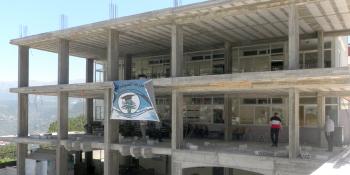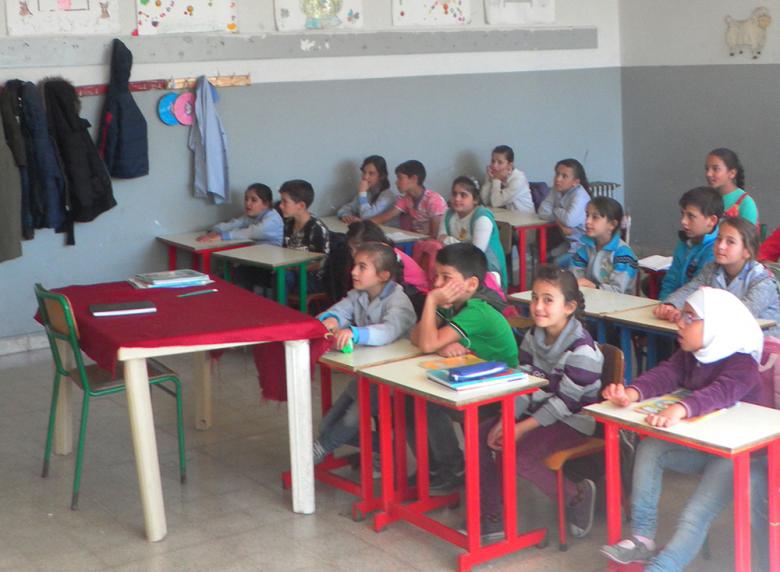
The subtitle goes here.
With the SlovakAid funds, Habitat for Humanity started renovating primary and secondary schools for local and refugee children in Lebanon. Almost 2500 children aged 6 to 18 will benefit from this work.
Beirut/Bratislava (July, 2017) – Out of 150,000 refugee children enrolled in elementary schools in Lebanon, around 14,000 do not attend classes regularly due to distances between homes and nearest schools or bad sanitary and classroom conditions in school buildings, according to UNRWA. Over the past years, demand for public schools in the country has increased. Lebanese public education system accommodates only up to 275,000 children. With the arrival of displaced Syrian families and the need to enroll refugee children into formal education, the existing infrastructure has been overstretched.
In 2016, Habitat for Humanity conducted a survey of schools around Beirut, Mount Lebanon. Many buildings do not matching basic requirements. Most common problems are:
- Buildings are not resistant to bad weather with leaking roofs, missing doors and windows;
- Schools have bad sanitary conditions lacking proper toilets and running water;
- Electrical installations are damaged or missing in many school buildings.
Lebanon lacks public funds to renovate these schools, and the job is left for development organizations and agencies. Currently, Habitat for Humanity renovates and builds extensions for six schools in and around Beirut, Aley and Chouf. At least 2400 children, aged 6 to 18, will enjoy renovated school facilities from September 2017. Habitat will expand school buildings, renovate washing areas and toilets, repair classes and common spaces, and waterproofing roofs and external walls, change windows or doors where necessary.

“Habitat for Humanity has been working in Lebanon since to 2001 and has always tried to support disadvantaged families affected by conflict. Affordable and adequate housing is essential for them as they need a home away from home,” says national director of Habitat for Humanity Lebanon Dani El Tayar. “Proper sanitation and education facilities for children are all parts of this expanded notion of a home.”
Financially, the work is supported through a grant of the Slovak development agency, SlovakAid.
“Humanitarian aid is an important component of Slovak development cooperation. The refugee crisis which is hamstringing Syria has put a lot of pressure on the neighboring countries, especially Lebanon and Jordan,” says Dr. Ing. Zuzana Letková, Director of SlovakAid. “Slovakia feels that it is important to support projects that improve learning environment and educational opportunities for children of the refugee families.”
Earlier this year, Habitat for Humanity started a similar project to renovate and upgrade at least eight schools in Jordan. This work has been supported through the SlovakAid grant too.